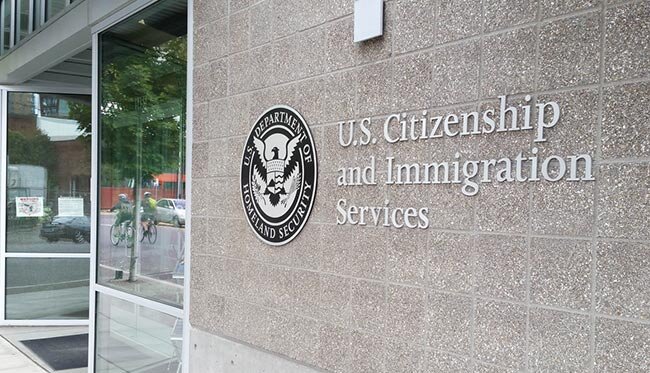The US Citizenship and Immigration Services (USCIS) are scheduled to publish the rules in the Federal Register on October 23. They have proposed these rules without changing the Congress-mandated limit of 60,000 on the number of such visas the US issues every year.
The Department of Homeland Security (DHS) announced that they are making the proposed rules public for stakeholders to give their comments and feedback. They stated that the proposed changes aim to streamline eligibility requirements, improve program efficiency, provide greater benefits and flexibilities to employers and workers, and strengthen integrity measures.
The H-1B programme helps US employers hire the employees they need to meet their business needs and remain competitive in the global marketplace, while adhering to all US worker protection norms under the law.
In a statement, the Secretary of Homeland Security Alejandro N Mayorkas said the Biden-Harris administration’s priority is to attract global talent, reduce undue burdens on employers, and prevent fraud and abuse in the immigration system.
Observing that the H-1B Visa non-immigrant visa program allows US employers to temporarily employ foreign workers in speciality occupations, defined by statute as occupations that require highly specialised knowledge and a bachelor’s or higher degree in the specific speciality or its equivalent, the DHS said the proposed rule would change how USCIS conducts the H-1B registration selection process to reduce the possibility of misuse and fraud.
The DHS stated that in the current process, the more registrations submitted for an individual, the greater their chances in the lottery. However, under the new proposal, each individual with a registration submitted for them would enter the selection process once, irrespective of the number of submissions made on their behalf.
“This would improve the chances that a legitimate registration would be selected by significantly reducing or eliminating the advantage of submitting multiple registrations for the same beneficiary solely to increase the chances of selection. Furthermore, it could also give beneficiaries more choice between legitimate job offers because each registrant who submitted a registration for a selected beneficiary would have the ability to file an H-1B petition on behalf of the beneficiary,” it said.
The proposed rule would revise the criteria for specialty occupation positions. This aims to reduce confusion between the public and adjudicators, and to clarify that a position may allow a range of degrees, as long as there exists a direct relationship between the required degree field(s) and the duties of the position.
The proposed rule codifies that adjudicators generally should defer to a prior determination when no underlying facts have changed at the time of a new filing.
The proposed rule would expand certain exemptions to the H-1B cap for specific nonprofit entities or governmental research organizations, as well as beneficiaries not directly employed by a qualifying organization.
The DHS would also extend certain flexibility for students on an F-1 visa when students are seeking to change their status to H-1B. Additionally, the department would establish new H-1B eligibility requirements for rising entrepreneurs.
By prohibiting related entities from submitting multiple registrations for the same beneficiary, the H-1B registration process aims to reduce misuse and fraud, in addition to strengthening integrity measures and changing the selection process. The rule would also codify USCIS’ authority to conduct site visits and clarify that refusal to comply with site visits may result in denial or revocation of the petition, the DHS said.
Indian American Ajay Bhutoria, a leading advocate for immigration reform welcomed the proposed ‘Modernizing H1B Requirements, Providing Flexibility in the F-1 Program, and Program Improvements Affecting Other Nonimmigrant Workers’ regulation.
These proposed changes mark a significant step towards streamlining our immigration system and making it more accessible for highly skilled professionals and students from around the world, Bhutria said.
“The proposed reform plan reflects a thoughtful approach to addressing some of the long-standing issues in the H-1B visa program, including providing more flexibility to F-1 students and improving conditions for other nonimmigrant workers. We appreciate the DHS’s commitment to fostering an environment that is conducive to attracting global talent and maintaining the competitiveness of American industries,” Mr Bhutoria said.








 Finance
Finance






